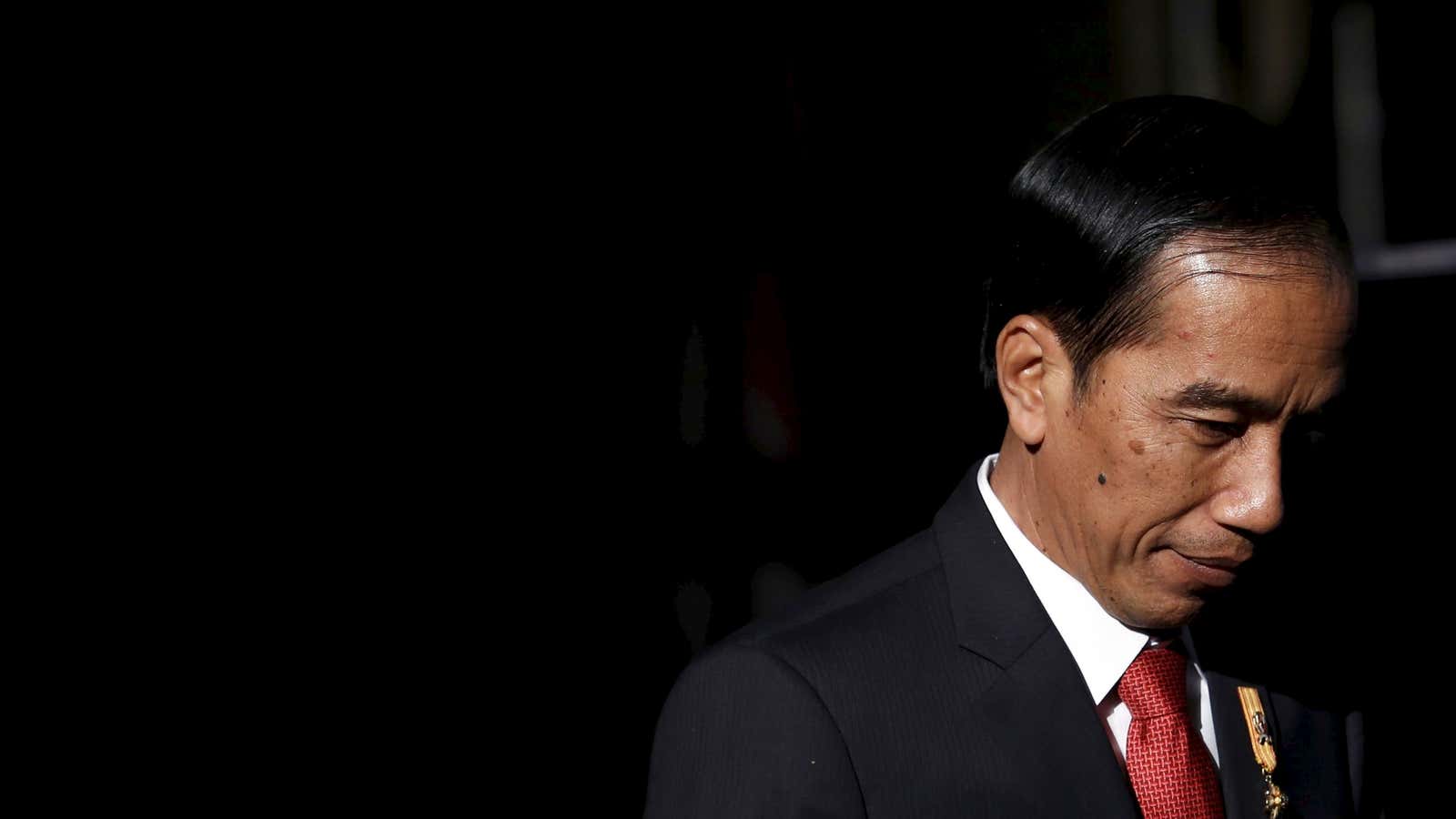Indonesian president Joko Widodo was scheduled to meet with Apple CEO Tim Cook in the US this week. Instead, he’s heading home early.
Not that Cook should feel jilted. Widodo, who did manage to meet president Barack Obama and announce his nation’s intent to join the Trans-Pacific Partnership on the trip, is rushing back to deal with a disaster of epic proportions. Fires set to clear land for various industries, notably palm oil, have conspired with dry weather to cast a persistent, toxic haze over large parts of Southeast Asia. The situation has gotten so bad that Indonesia is planning evacuations by warships in the worst-affected areas.
Among other topics, Widodo and Cook were set to talk about the sourcing of tin, which Apple uses in iPhones and gets from Indonesia. As with palm oil, troubling practices lurk behind the production of tin in the archipelago nation.
Two impoverished islands off the coast of Sumatra—Bangka and Belitung—produce most of Indonesia’s tin. By an accident of geography, natural forces have made tin on the islands exceptionally abundant and mineable via low-tech means. Both islands feature many middlemen and crude small-scale mining operations involving unsafe practices and child labor. It’s hard to know which tin comes from which operations.
Apple says it wants to ensure that it sources only tin that is ethically produced, while Widodo wants Apple to invest in sustainable mining. Ironically, the disaster pulling Widodo back home involves another irresponsibly produced commodity—palm oil. Indonesia has resisted attempts to nudge its palm oil industry away from irresponsible production methods, such as draining carbon-rich peatlands and burning them along with forests to make way for plantations.
But much of that nudging has come from companies like Unilever, Nestle, and Procter & Gamble, which in turn are responding to pressure from concerned consumers. Just as Apple would like to tell its customers nice things about its supply chains, so too would companies like Unilever, which uses palm oil in everything from shampoo to margarine to ice cream.
Indonesia’s economy is heavily reliant on commodities like coal, rubber, copper, palm oil, and tin. Widodo wants to rebalance the economy toward manufacturing and away from commodities, which have been hard-hit by China’s slowdown. But whereas commodities operations must go where the commodities are, manufacturing can go anywhere—and it tends to be lured by good infrastructure and sensible policies, which Indonesia struggles with relative to some other nations.
Apple gets its tin from Indonesia but manufactures its iPhones elsewhere for a reason. Perhaps Widodo should reschedule that meeting with Cook.
